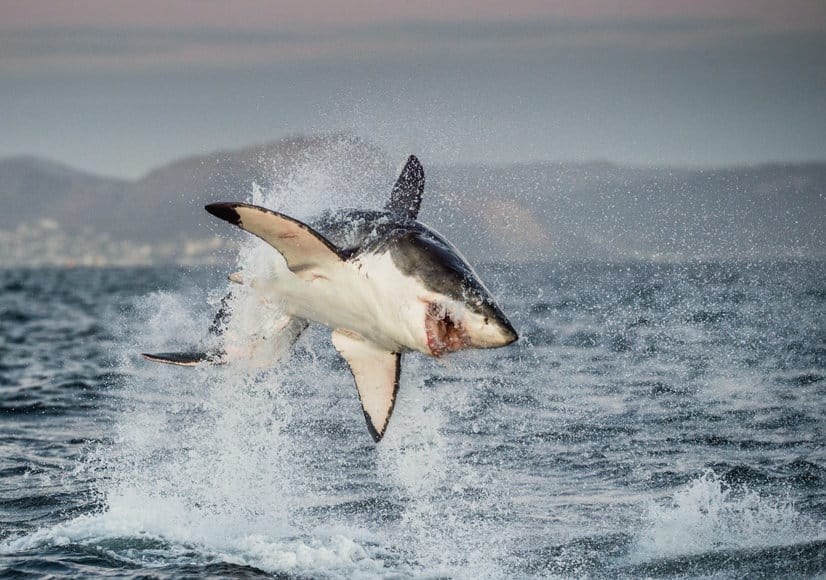By John Salak –
Those in the know realize it is not a good idea to go cavorting around Llanwelly, Wales late at night when the moon is full. After all, it’s the ancestral home of the Talbots, who among other famous and lesser-known family members, boast Lawrence Talbot, perhaps better known as the Wolf Man, as one of their own.
Scientists in Louisiana and Florida may have just given us another reason to stay tucked up warm and dry when the moon is full. Apparently, shark attacks hit an uptick during fuller phases of the moon compared to lower illuminated periods.
Why? They’re not sure, but previous research indicates that lots of animals experience behavioral changes in line with different moon phases. The research undertaken by Louisiana State University and the University of Florida probably represents the first extensive effort to determine how these phases impact shark attacks.
The findings are based on 55 years of global shark attack records from the International Shark Attack File that covered 1960 to 2015. The extensive scope of the data helped the research team draw a clear correlation between lunar phases and these attacks. But unlike the dangers that a hairy Larry Talbot can bring about under a full moon, apparently, there is more at play than moonlight when it comes to shark attacks.
“It’s not a matter of more light at night for sharks to see. Most shark attacks occur in the daylight,” explained Steve Midway, LSU associate professor and researcher. “However, the moon can exert other forces on Earth and its oceans in ways that are much more subtle—for example, the gravitational pull that we see affect the tides.”
These researchers admit all they’ve identified to date is that more attacks happen during these lunar phases. They haven’t established lunar illumination as a cause. However, the correlation is still significant. “The abundance of data we have would suggest that there is something there that’s worth continuing to look at,” Midway said.
The LSU-University of Florida research, while potentially disheartening to moonlit swimmers, has to be placed in context. Shark attacks are extremely rare, although they admittedly get tremendous publicity when they occur, especially if a fatality occurs. Nonetheless, unprovoked shark attacks worldwide fell for the third consecutive year in 2020 to 57, which is down almost 15 percent from 2018, the International Shark Attack File (ISAF) reported. The File also noted there were 39 provoked attacks in 2020, which involved individuals annoying, petting, feeding or engaging sharks in some other way.
The total number of attacks resulted in 10 deaths globally, including 3 in the United States. While final numbers aren’t in for 2021, there may have been only one shark attack fatality in the U.S. last year, which occurred in California on December 24. While no one is arguing that shark attacks are less than a tragedy, they are extremely rare. The ISAF, in fact, reports that individuals in the U.S. are much more likely to die from an alligator attack or a lightning strike than a shark attack. All this makes getting into the water a lot easier in day or night, which is a good thing because swimming is great exercise.
People also are probably pretty safe hanging around Llanwelly or other parts of Wales. It’s a magnificent country. Of course, it may be wise to check the lunar cycles and to heed the advice of Maleva’s people before exploring the Welsh countryside at night.
“Even a man who is pure of heart and says his prayers at night may become a wolf when the wolfsbane blooms and the autumn moon is bright.”










